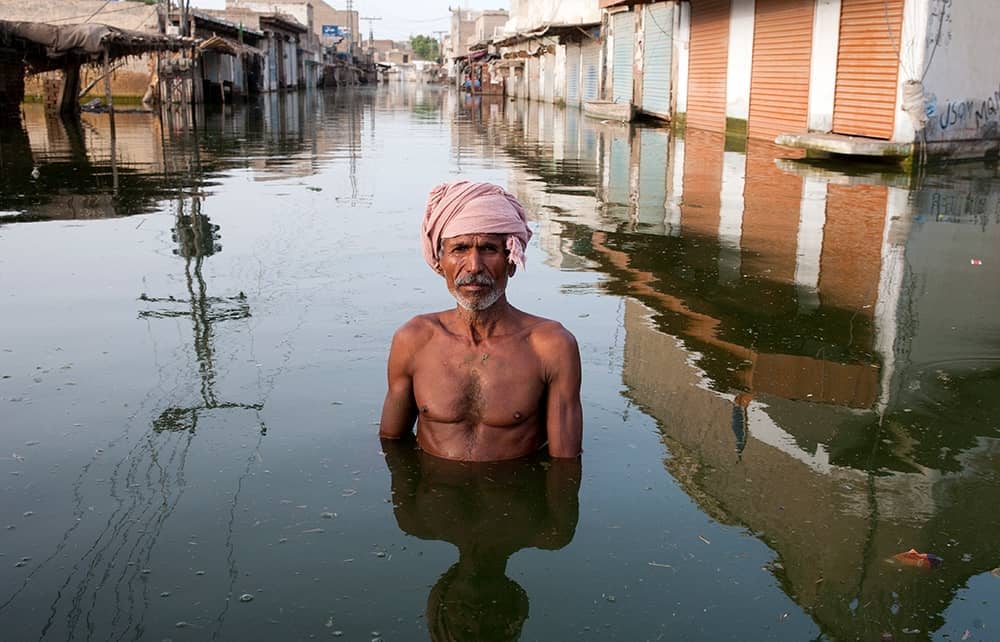For years, environmentalists have campaigned for children to study global warming as a subject rather than simply as a part of geography. Their wish has now been granted in England with a new GCSE in natural history, starting from 2025. We know nothing yet about the syllabus but it’s quite the opportunity to ask what our planet’s problems really are, and how effective the net-zero agenda is as a solution.
Rather than be scared to death about the future of the planet, pupils should instead be encouraged to take a rationalist approach. They might ask whether the obsession with climate change in recent decades has taken attention away from the many other major problems facing the planet. And they might also look at ‘extreme weather events’ and whether they really are claiming more lives.
Let’s start with hurricanes. The world experienced fewer of them in 2021 than in any year since satellites started to consistently record their prevalence. The latest study from the UN climate panel of scientists finds that hurricanes will be less frequent but stronger, thereby increasing the commercial cost of hurricane damage. But because the world will also get richer, relative damages will keep declining, just slightly more slowly than they would have done. A problem, yes. But not a catastrophe.
So is ‘climate chaos’ costing more lives – in the third world, or elsewhere? Insofar as official records can attest, the overall risk of climate-related disaster death has dropped over the last century, not by a little but by an astonishing 99 per cent. Over the past 20 years, as temperatures have gone up, heat deaths have increased by 116,000 per year. But a recent global Lancet study also shows that cold deaths, which are almost ten times more common, have declined by 283,000. It’s all about perspective.
For the best sense of what to expect from a warming planet, we should turn to the latest damage estimates from the economic models used by the Biden and the Obama administrations to set policy. This research reveals that the entire global cost of climate change – not just to economies, but in every sense – will be equivalent to less than a 4 per cent hit to GDP by the end of the century.
What do such percentages actually mean? By the UN’s own estimates, the average person in 2100 will be 450 per cent richer than today. Global warming will make this increase 4 per cent smaller, reducing it by 16 percentage points. It means that the average person in 2100 will ‘only’ be 434 per cent as rich. This is not a disaster.
There are practical implications. There certainly are studies showing that low-lying Bangladesh will be threatened by sea level rises by the end of the century. But similarly, the UN also assumes that by then Bangladesh will be richer than the Netherlands is now, and able to afford flood defences.
It’s crucial to apply economics to natural sciences because there certainly is a trade-off. The world already spends more than half a trillion dollars a year on climate policies, while rich-world government spending on innovation in areas such as healthcare, defence, agriculture and science has declined as a percentage of GDP over recent decades. Such investment underpins future growth, which perhaps explains why rich-world income has almost stalled this century. Compare this with China, where innovation spending is up 50 per cent, education is rapidly improving, and average incomes have increased five-fold since 2000.
A natural history course could ask children something else: why, despite all this focus, are we failing to solve climate change? Last year saw the highest global energy-related CO2 emissions ever. Britain is doing its bit, having lowered climate emissions relatively more than any G20 country since 2010, with overall per capita climate emissions lower than in Victorian times. But energy prices have increased substantially.
Most emissions in this century will come from developing countries keen to lift their people out of poverty with cheap and reliable energy. To get the rest of the world to join a decarbonisation agenda, we need to dramatically increase research and development funding in green energy sources, so these will eventually become so cheap that everyone can afford them.
The UK government recently announced ‘carbon literacy training’ for every local authority nursery, school, college and university in England. This ought to extend to where we are now – and the extent to which proclaimed solutions address the overall problem. If there is a mismatch, perhaps the next generation will be able to point this out and change a conversation that has stayed the same for far too long.






Comments